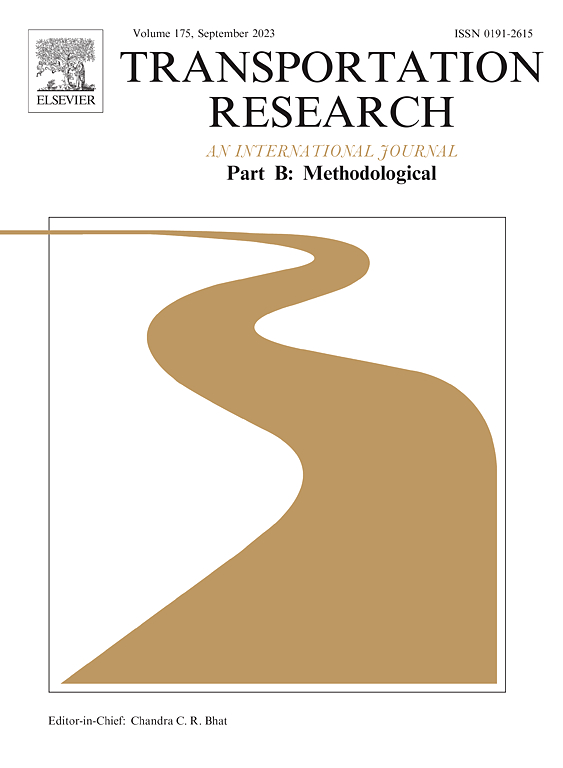拥堵条件下电动汽车充电站的稳健规划
IF 6.3
1区 工程技术
Q1 ECONOMICS
引用次数: 0
摘要
过去几十年见证了电动汽车(EV)销量的增长,同时对公共电动汽车充电设施的需求也在不断增长。与化石燃料汽车加油不同,电动汽车充电需要更多的时间,如果公共充电基础设施设计不当,可能会导致拥堵。本文研究了公共电动汽车充电站的战略规划,目的是在投资预算有限的情况下放置充电站,以最大限度地覆盖不确定的充电需求。为了确保在可能出现的拥塞情况下的服务质量,我们引入了两种类型的机会约束,以减少在有限的等待空间下的长等待时间和减少需求损失。考虑到在准确估计充电需求和充电时间方面存在的挑战,我们采用了一种鲁棒的方法来对充电需求到达和服务费率不确定的问题进行建模。然后将鲁棒模型重新表述为一个中等大小的等效混合整数线性规划,该规划可由商业求解器处理。基于南京数据的案例研究证明了所提出的稳健方法的有效性,并为实际应用提供了见解。讨论了一般充电过程下的扩展和充电站驾驶员选择的分散,并通过大量的数值实验验证了该方法在一般设置下的稳定性能。本文章由计算机程序翻译,如有差异,请以英文原文为准。
Robust planning for electric vehicle charging stations under congestion
The last decades have witnessed the rise of electric vehicle (EV) sales, accompanied by a growing demand for readily accessible public EV charging facilities. Unlike refueling a fossil fuel vehicle, charging an EV requires significantly more time, which may lead to congestion if the public charging infrastructure is not well-designed. In this paper, we study the strategic planning of public EV charging stations, aiming to place chargers with a limited investment budget to maximize the coverage of uncertain charging demand. To ensure service quality under possible congestion, we introduce two types of chance constraints to mitigate long waiting times and reduce demand loss in situations with limited waiting space. Given the challenges in accurately estimating charging demand and charging time, we apply a robust approach to model this problem with uncertain charging demand arrival and service rates. The robust model is then reformulated into an equivalent mixed integer linear program of moderate size, which is tractable by commercial solvers. A case study based on data from Nanjing demonstrates the effectiveness of the proposed robust approach and provides insights into real-world applications. Extensions with a general charging process and decentralized driver selection of charging stations are also discussed and verified through extensive numerical experiments, which indicates the stable performance of the proposed approach under general settings.
求助全文
通过发布文献求助,成功后即可免费获取论文全文。
去求助
来源期刊
CiteScore
12.40
自引率
8.80%
发文量
143
审稿时长
14.1 weeks
期刊介绍:
Transportation Research: Part B publishes papers on all methodological aspects of the subject, particularly those that require mathematical analysis. The general theme of the journal is the development and solution of problems that are adequately motivated to deal with important aspects of the design and/or analysis of transportation systems. Areas covered include: traffic flow; design and analysis of transportation networks; control and scheduling; optimization; queuing theory; logistics; supply chains; development and application of statistical, econometric and mathematical models to address transportation problems; cost models; pricing and/or investment; traveler or shipper behavior; cost-benefit methodologies.

 求助内容:
求助内容: 应助结果提醒方式:
应助结果提醒方式:


